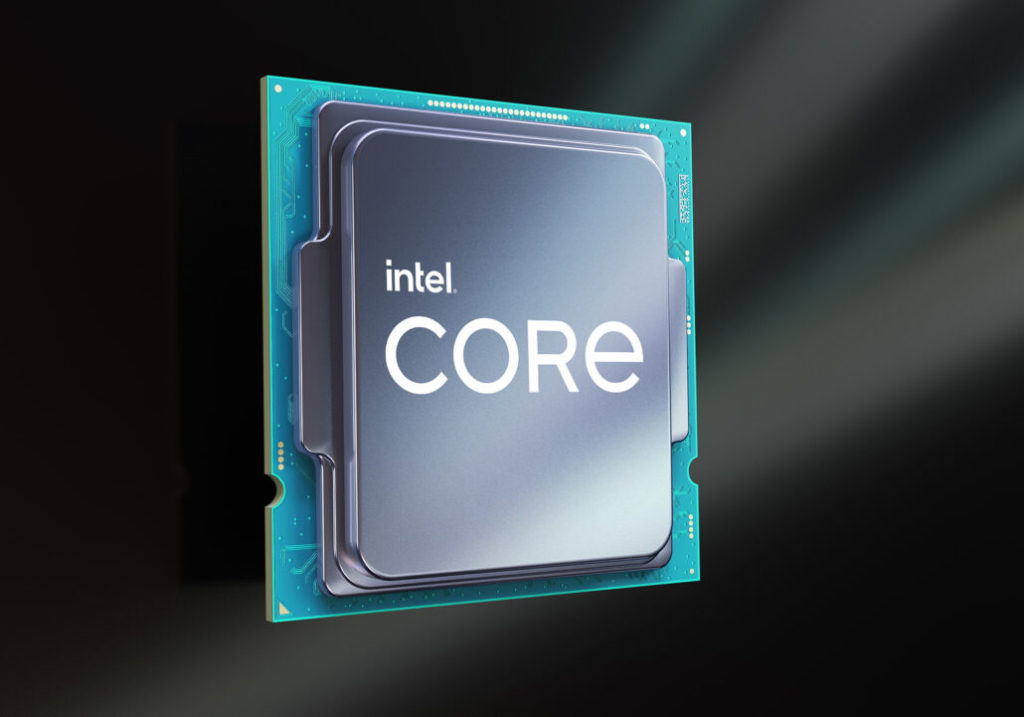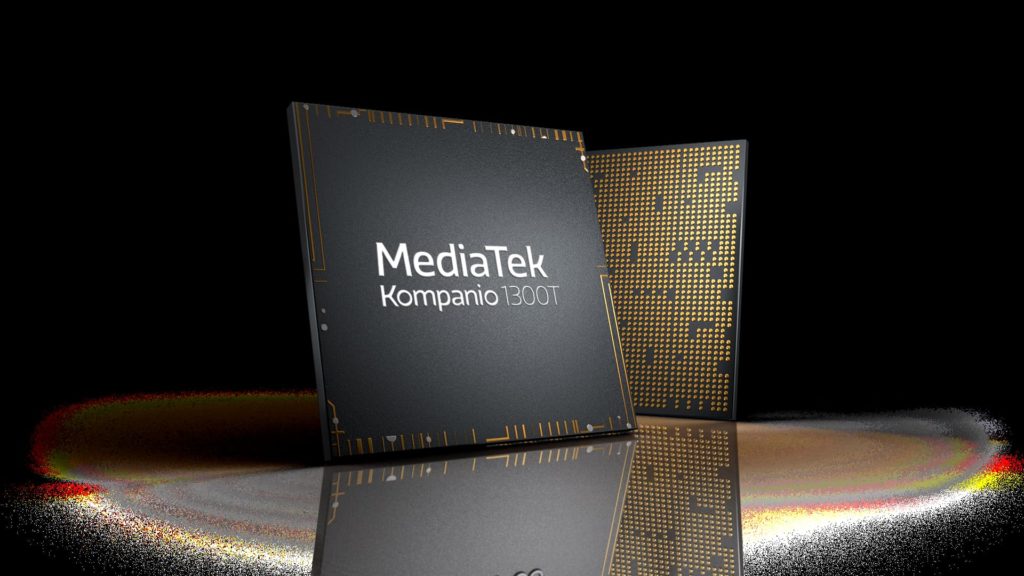Update: Although the MediaTek Kompanio 1300T has a very similar architecture to the MT8195 chip that’s expected in Chrome OS devices in the next few months, it is a different chip. And as such, MediaTek tells me the 1300T is targeted for Android tablets, not Chrome OS tablets. The original post follows but you can see detailed information here.)
Last week the MediaTek Kompanio 1300T for Chrome OS tablets was announced and I’ve been thinking about the news since then. On the one hand, this is good news: Any more efficient silicon that can speed up Chrome OS tablets is a good thing. On the other hand, it makes sense to keep some measure of perspective and manage expectations.
Here’s the good news. The MediaTek Kompanio 1300T is the new name of the MediaTek MT8195 announced last year for Chrome OS devices. I suspect the “T” in the chipset name means this is a version specifically for tablets.
Indeed, MediaTek’s press release only mentions tablets, although a slightly different variant, or even the same chip under another name, could be used for Chromebooks.
When the MT8195 was introduced, I said this in reference to the then-upcoming Qualcomm Snapdragon 7c:
“It’s built on TSMCs 6nm process, so there are immediate power efficiency gains available simply based on the transistor density. Like the Snapdragon 7c, it has 8 CPU cores. Unlike the 7c are the configuration and ARM architecture. The M8912 has four high-power Cortex-A78 cores and four of the same Cortex-A55 cores as the 7c.”
The more dense MediaTek Kompanio 1300T packed with more transistors will use less energy and speed up performance. And the step up to a newer version of the ARM architecture can bring more efficiencies and speed. Again, this is all good!
And then I think back to that song by The Who: “Won’t get fooled again”. I say that because I feel like Charlie Brown trying to kick the football that Lucy holds every time we have a new ARM chipset for Chromebooks and Chrome OS tablets. Lucy pulls the football at the last second and we’re all left wanting more from our devices with the next-generation ARM processors.

Case in point: There was much ado about the Qualcomm Snapdragon 7c compute platform inside Chromebooks about a year ago. It all sounded good on paper.
In the end though? You got the performance around an Intel Celeron or Pentium albeit with some extra battery life.
There’s a market for devices with those experiences, for sure. But until we have ARM processors that can power Chromebooks and Chrome OS tablets like mid-range or even high-end Intel Core processors, there’s not really that much to be excited about here.
Put another way, Apple’s M1 chip is leaps and bounds better than what any other ARM licensee and chip designer is even close to putting into products.
Sure, you can’t outfit a Chromebook or Chrome OS tablet with that M1, but my point is this: The other ARM chipmakers are really just following their expected evolution path. There’s no “magic” here that will profoundly change the market in the world of Chrome OS.
To wit: Chrome Unboxed found some solid Geekbench evidence of the MediaTek Kompanio 1300T, showing a nice gain in single and multicore scores over the Snapdragon 7c. The MediaTek numbers show scores averaging around 880 and 2900, respectively.
Those compare favorably with Geekbench scores for the Snapdragon 7c, which scored 594 and 1654 in a Qualcomm-commissioned report. For comparison, Geekbench scores of the Intel Pentium Silver N5000 are reported as 425 and 1195.

So, it’s likely the MediaTek Kompanio 1300T will offer more performance than a last-gen Pentium Silver. How about when it comes to the next step up, an Intel Core i3?
I did some digging around and found a recent Geekbench score for a four-core 8th-gen Intel Core i3 and it scored 1411 and 4900.
Those numbers are artificial benchmarks, yes, but they’re much higher than the upcoming MediaTek CPU scores.
Yet that Intel processor launched just over three years ago and has half the cores as the octa-core MediaTek Kompanio 1300T.
As a said, these numbers are artificial benchmarks and my stance on those hasn’t changed: They’re just a general indication of potential performance. We won’t know how Chrome OS tablets with MediaTek’s new silicon will perform for a few months yet because that’s when the first devices using them will arrive. And another factor is what we’ll pay for that performance.
So I’d be wary of PR hype and keep expectations in check on this news. Maybe “conservatively optimistic” is the best mindset at this point.
While the overall progress is promising and a step forward, I don’t see these chips being the Intel killers that some Chrome OS fans are hoping for. We’ve been down this road before and hopefully, we won’t get fooled again.
Updated on August 2, with information about the 1300T meant for Android tablets, not Android tablets.



8 Comments
A common refrain of mine here: blame Google for this. Why?
An ARM SOC that is capable of competing with 11th gen Intel already exists: the Qualcomm Snapdragon 8cx Gen 3. It has 8 Cortex-A78C cores and provides multicore performance competitive with the latest quad core Intel Core i5.
https://www.windowscentral.com/qualcomms-next-8cx-chip-could-compete-intels-11th-gen-cpus
The problem is that as Google years ago made the decision to de-emphasize everything but Intel for ChromeOS, the 8cx Gen 3 is only going to be in the next Surface Pro X and its clones. Just as the latest AMD APUs will be. The Steam Deck should have been a ChromeOS device. Google should have been first in line to reserve quad core AMD Zen 4/RDNA 3 APUs for Pixel Slate type devices. But they decided to put all their eggs in the Intel Evo basket instead.
In 2022 even better ARM SOCs will be possible for ChromeOS in theory. You would be able to use 8 Cortex-X2 cores, 8 Cortex-A710 cores or mix-and-match. The problem is that Google has to get someone to agree to make such an SOC and someone to agree to use it in a Chromebook (ideally Samsung for both). Instead, because Google shows no leadership here we are going to continue to mostly get Chromebooks with outdated smartphone CPUs.
I’m hoping to see Google make a comeback in the tablet market with its Tensor SOC. Wishful thinking.
Chromeos on tablets needs a he’ll of a lot of work. Personally, I think it needs the customisation options of android to make it usable.
A 4 core 8th gen i3? No. Those were 2 core. Did you misunderstand the naming scheme and accidentally flag a newer generation?
It’s a damn shame arm liscencess are far more interested with cost of the end product and keeping R&D costs low and steady then making groundbreaking performance. There’s nothing whatsoever stopping the likes of Qualcomm and mediated and etc… From making chips like the M1 but alas I guess doing minimum modification to what the buy from ARM and past chips for a mediocre performance boost is as far as they’re willing to go…. I’m really hoping Qualcomm steps up here and makes something worthwhile in the near future to help solidify a future where x86 doesn’t hold a crushing supremacy
Did this benchmark covered anything about performance per watt???
No such luck. Too early for that until end users get their hands on devices with this chipset.
Updated on August 2, with information about the 1300T meant for Android tablets, not Android tablets.